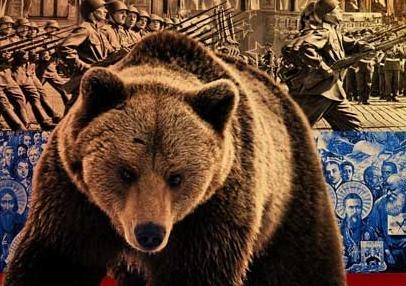The dangers of poking the Russian trade bear
Poke a Russian bear with a trade stick and he will retaliate. That's the lesson facing Australian exporters in the wake of the MH17 disaster, says UNSW Business School’s Tim Harcourt.
Poke a Russian bear with a trade stick and he will retaliate. That's the lesson facing Australian exporters in the wake of the MH17 disaster, says UNSW Business School’s Tim Harcourt.

“Poke a Russian bear with a stick and he will retaliate,” says UNSW Business School’s Tim Harcourt. "That’s the lesson facing Australian exporters today. When Australia announced they were joining the USA and Europe in placing trade sanctions on Russia in response to Malaysian Airlines MH 17 being shot down in Ukraine, it could do so realising there wasn’t much trade to talk about.”
Russia has introduced an embargo on agricultural products from Australia, the European Union, the United States, Canada and others. Those countries have imposed their own sanctions against Moscow over its policy in Ukraine.
Tim Harcourt, the J.W. Nevile Fellow in Economics at UNSW, has analysed Russia-Australia trade and found it is worth only $1.8 billion and is our 28th largest export destination.
“It’s pretty trivial. In fact Russia’s main export destinations are – wait for it – the Netherlands, Turkey and the Ukraine. It imports mostly from China, Germany and the USA. Australia only accounts for 0.3% of Russian imports as Russia’s 44th largest import source and we are Russia’s 99th largest export destination, which barely registers on the trade accounts,” Harcourt says.
However Russia’s counter sanctions could now hurt agricultural exports particularly in wheat, dairy, beef and kangaroo meat. “Russia is our main export market for kangaroo meat, so Skippy and the animal rights movement may applaud Putin’s actions to ban Australian exports.”
He argues Russia’s actions could hurt Russia most of all. “A government putting on tariffs or other forms of trade protection is a like a government shooting its own people during peace time. Or as the legendary Cambridge economist Joan Robinson used to say: trade bans are like ‘putting rocks in your own harbour’.”
Harcourt warns that Putin might well be bringing food shortages back to Russia. “For a democracy it would be unbearable but at an 87% approval rating Putin won’t worry about that. It’s also debateable if trade sanctions work."
"In economic history the record is patchy. The economic evidence is mixed when looking at trade sanctions against South Africa, Southern Rhodesia (now Zimbabwe), Cuba, Fiji and now recently Burma (Myanmar). The evidence shows that the economic sanctions against South Africa were more ‘psychologically hurtful’ to the apartheid regime than economically damaging," he says.
"In a well-functioning economy sanctions can bite quickly, but Russia has an oligopolistic, or we could say ‘oligarch-listic’, anti-competitive economy so the oligarchs will choose to absorb the sanctions or distort the effects. The West has tried to target Russian funds abroad in the UAE and [UK] as that’s where the Russian oligarchs keep their capital but that’s going to be a difficult target.
“I fear the MH17 and the Russia-Ukraine crisis has a long way to go into terms of geo-politics. Trade is likely to be just one weapon of choice in the skirmish.”
Media contacts: Tim Harcourt, 02 9385 3816, 0408 485 479.
UNSW Busines School Media: Julian Lorkin, 02 9385 9887.